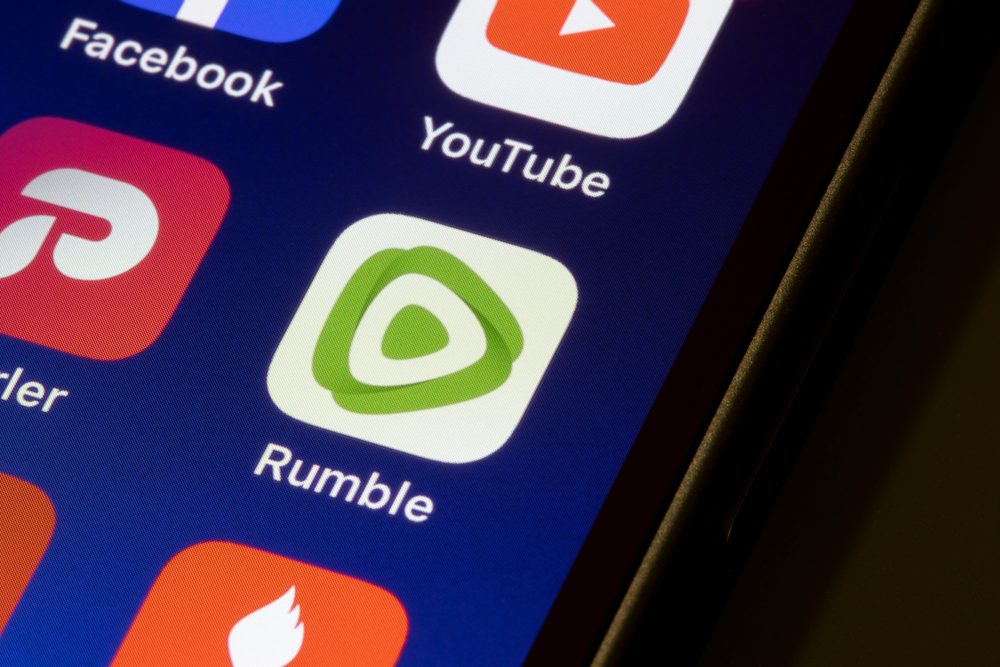
Rumble, the video platform which offers itself as an alternative to a censor-happy YouTube, has cut off access to French users. The move comes as a response to the French government’s request for the platform to stop hosting Russia Today and Sputnik—outlets viewed by European authorities as Russian propaganda channels.
Rather than give in to state pressure, Rumble’s CEO, Canadian entrepreneur Chris Pavlovski, felt compelled to uphold the platform’s commitment to its anti-censorship policy.
“Like @elonmusk, I won’t move our goal posts for any foreign government,” he wrote in a November 1st tweet, adding that his company “will turn off France entirely (France isn’t material to us) and we will challenge the legality of this demand.”
The French Government has demanded that Rumble (@rumblevideo) block Russian news sources. Like @elonmusk, I won't move our goal posts for any foreign government.
— Chris Pavlovski (@chrispavlovski) November 1, 2022
Rumble will turn off France entirely (France isn't material to us) and we will challenge the legality of this demand. https://t.co/a4Nn4S1MMf
Musk is Pavlovski’s inspiration. He referenced the new Twitter CEO’s refusal last March to block Russian news sources from his Starlink satellite internet service: “Starlink has been told by some governments (not Ukraine) to block Russian news sources,” Musk wrote. “We will not do so unless at gunpoint. Sorry to be a free speech absolutist.”
The internet utility is currently offered at no cost to Ukraine, which is suffering from an infrastructure crippled by Russian missile strikes, affecting electricity as well as water supplies.
A separate tweet, from Rumble’s own Twitter account, noted that acceding to the French government’s demand would go against Rumble’s mission to “restore a free and open internet.”
The statement clarified that, while France “represents less than one percent” of Rumble’s total user base, it would nonetheless “lose access to a wide range of Rumble content because of the government demands.” It went on to express the hope that the government “reconsiders its decision so we can restore access soon.”
An update on our services in France pic.twitter.com/GpcytLqjrY
— Rumble – 🏴☠️ $RUM (@rumblevideo) November 1, 2022
Just last August, the company, founded in 2013 and headquartered in the U.S. and Canada, reported it could now boast 78 million monthly active users globally, out of which 63 million reside in the U.S. and Canada—marking a year-over-year growth of 103%. The platform noted that a “substantial portion” of that growth came from Gen Z-ers (18- to 24-year-olds).
Besides a platform for video content, Rumble is also a cloud services provider; among its clients is Truth Social, the social media platform headed by former U.S. President Donald Trump, which he started in 2021 after having been booted from Facebook and Twitter.
Ever since Russian forces entered Ukraine last February, the websites of Russia Today (which broadcasts in five languages) and Sputnik have been essentially banned in the West—making them only accessible through use of a VPN (Virtual Private Network) service.
Major U.S.-based social media platforms, most notably Twitter and Facebook, blocked these sites’ content; cable and streaming services dropped their programming, and Apple and Microsoft removed the Russian sites’ apps from their stores.
In a televised interview with France 2, French President Emmanuel Macron explained the continued difficulty in keeping RT and Sputnik content away from ‘gullible’ French viewers.
“We are using the informational weapon, and Russia was doing it even before [the war] by spreading propaganda on social networks, through propaganda channels that we have cut off on our soil but which still continue to find channels to broadcast,” he said.
Macron’s antipathy towards Sputnik and Russia Today is not new. In 2017, as he stood next to Putin during their Versailles meeting, Macron called the news sites “agents of influence” that had spread falsehoods about him during his election campaign.
